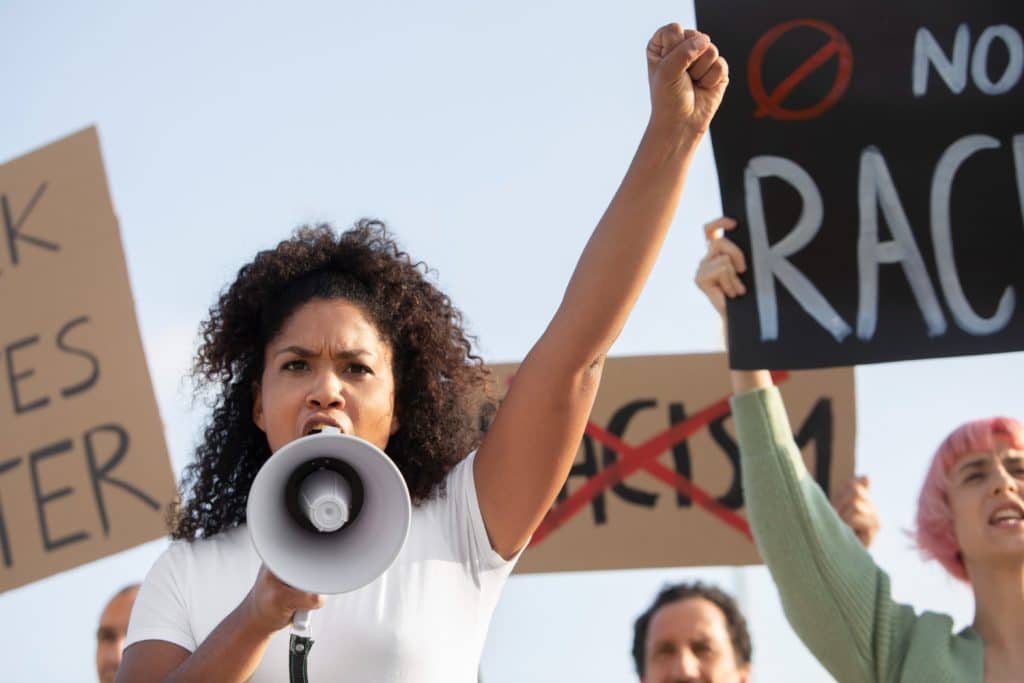The Columbia University Antisemitism Investigation and Its Ripple Effect Across Campuses

Anúncios
The Columbia University antisemitism investigation has ignited a firestorm of debate surrounding campus culture and safety. What happens when a university faces accusations of failing to protect its students from hate?
As the investigation unfolds, questions about inclusivity, accountability, and legal responsibility are at the forefront. How will the university respond to ensure the well-being of all its students?
This investigation isn’t just about a single campus, it’s a reflection of broader concerns in higher education. Let’s explore the deeper implications and what it means for future generations.
Anúncios
Background of the antisemitism claims
The Columbia University antisemitism investigation stems from a series of incidents that have raised significant concerns about the safety and well-being of Jewish students on campus.
These events have prompted federal scrutiny, legal actions, and widespread debate about the university’s response to allegations of antisemitic behavior.
Anúncios
Incidents That Triggered Claims
The controversy intensified following the October 7, 2023, Hamas-led attack on Israel, which led to a surge in pro-Palestinian protests at Columbia University.
While the university maintained that these demonstrations were expressions of free speech, several Jewish and Israeli students reported experiencing harassment, verbal abuse, and, in some cases, physical violence.
These reports were documented in a comprehensive task force report, which highlighted a pattern of antisemitic incidents across various campus settings, including dormitories, classrooms, and social media platforms.
University Reactions
In response to these allegations, Columbia University established a Task Force on Antisemitism to investigate the claims and recommend measures to address the issue.
The task force’s second report, released in August 2024, found that the university had failed to adequately protect Jewish students and had not treated their concerns with the necessary seriousness.
The report criticized the university for its “deliberate indifference” toward antisemitic harassment, leading to a violation of Title VI of the Civil Rights Act of 1964.
In light of these findings, federal agencies, including the Department of Education and the Department of Health and Human Services, issued a joint notice of violation to Columbia University.
This action was taken to address the unlawful antisemitic harassment and violence that had been reported on campus.
The Broader Context
The situation at Columbia University is part of a larger national conversation about antisemitism in academic institutions.
Many universities across the United States have faced similar challenges in balancing free speech with the need to protect students from hate and discrimination.
The federal government’s intervention at Columbia has set a precedent for how such issues may be addressed in the future, raising questions about the role of government in regulating campus conduct and the potential impact on academic freedom.
As the investigation continues, the outcomes at Columbia University will likely influence policies and practices at other institutions, shaping the landscape of higher education in the United States concerning the prevention and response to antisemitism.
Key incidents prompting the investigation
The Columbia University antisemitism investigation has been propelled by a series of incidents that have deeply affected the campus community.
These events have not only highlighted tensions within the university but have also drawn national attention to the challenges of balancing free speech with the protection of students from hate and discrimination.
Notable Events
Key incidents prompting the investigation include a range of protests and demonstrations, particularly following the October 7, 2023, Hamas-led attack on Israel.
Pro-Palestinian groups, such as Columbia University Apartheid Divest (CUAD) and Students for Justice in Palestine (SJP), organized large-scale protests and occupations on campus, demanding that the university divest from Israel.
While these protests were largely peaceful, some participants reportedly made antisemitic remarks and engaged in behavior that Jewish students found threatening.
For instance, during a November 9, 2023, protest, an individual shouted antisemitic slurs, prompting condemnation from fellow demonstrators, including activist Mohsen Mahdawi, who denounced the hateful remarks.
Community Reactions
The reactions from various stakeholders have varied significantly. Many students expressed feeling unsafe or marginalized, prompting a call for the administration to address these concerns.
The university’s efforts to mediate the dialogue reflect an acknowledgment of the pain and division felt by students.
Some faculty members have voiced their support for open discussions on these topics, emphasizing the necessity for a safe environment where diverse opinions can be shared without fear. However, this stance is not without opposition.
As the investigation continues, it becomes increasingly important to navigate these conversations carefully, balancing free expression with the need for respect and dignity.
Responses from Columbia University administration
The responses from the Columbia University administration to the rise in antisemitism claims have been a crucial part of the ongoing dialogue.
The administration has been tasked with ensuring a safe and inclusive environment for all students.
Official Statements
In the wake of the allegations, university officials have issued statements highlighting their commitment to addressing antisemitism.
These statements reflect the administration’s acknowledgment of the issue and the need for action. The university has held public forums to discuss concerns raised by students, aiming to foster an open dialogue.
- Affirmation of support for all students’ rights.
- Commitment to investigate claims thoroughly.
- Plans for more educational programs on diversity.
Such measures are essential for rebuilding trust within the campus community.
Educational Initiatives
Alongside public statements, Columbia has initiated several educational programs to combat antisemitism. These programs aim to educate students and faculty about the importance of respect and understanding.
Workshops that focus on cultural sensitivity and conflict resolution have been introduced to promote an atmosphere of learning.
Although these initiatives are steps in the right direction, some argue that they may not go far enough. The effectiveness of these programs relies on student engagement and administration commitment to continual improvement.
As the administration navigates these complex issues, it’s clear that a multilayered approach is necessary to address the varied perspectives within the community. Encouraging dialogue and providing resources will be key to overcoming this challenging period.
Student and faculty reactions
The Columbia University antisemitism investigation has elicited a spectrum of reactions from students and faculty, reflecting the complexities of balancing free speech with the need to protect individuals from hate and discrimination.
These responses have highlighted the challenges universities face in fostering an inclusive environment while respecting diverse viewpoints.
Student Perspectives
Jewish students at Columbia University have expressed feelings of fear and marginalization in the wake of the antisemitism investigation.
Many reported experiencing harassment, verbal abuse, and, in some cases, physical violence during campus protests and demonstrations.
For instance, a student who placed a mezuzah on her dormitory door was targeted and ultimately left the dormitory due to the harassment she faced .
These incidents have prompted calls for the university to take stronger actions to protect Jewish students and address antisemitic behavior on campus.
In response to these challenges, some students have organized rallies and demonstrations to raise awareness about antisemitism and demand accountability from the university administration.
These student-led initiatives aim to create a more supportive and inclusive environment for all students, emphasizing the importance of addressing hate and discrimination in all forms.
Faculty Responses
Faculty members at Columbia University have also voiced their concerns regarding the antisemitism investigation, with reactions varying across the academic community.
Some professors have criticized the university’s handling of the situation, arguing that the administration’s response has been inadequate and has failed to protect Jewish students effectively.
These faculty members advocate for more robust policies and actions to combat antisemitism and ensure a safe learning environment.
Conversely, other faculty members have expressed support for the university’s efforts to address antisemitism, emphasizing the need to balance the protection of students with the preservation of academic freedom.
They argue that while combating hate is crucial, it is equally important to maintain an environment where diverse perspectives can be freely expressed and debated.
Legal implications and challenges
The legal implications and challenges surrounding the antisemitism investigation at Columbia University are crucial to understanding the broader context of the situation.
These issues involve various aspects, including free speech and discrimination laws.
Free Speech Concerns
One of the main legal challenges involves balancing freedom of speech with the need to combat hate speech.
While students have the right to express their opinions, some expressions may cross the line into harmful rhetoric. This creates a legal grey area that complicates the university’s response.
- Debates over the definition of hate speech.
- Potential lawsuits regarding free speech rights.
- The impact of campus policies on expression.
These factors make it essential for the university to navigate the situation carefully to avoid legal ramifications.
Title IX Considerations
Another significant aspect is how Title IX regulations may come into play. Title IX prohibits discrimination based on sex, including harassment that affects a person’s education.
If antisemitic actions are found to create a hostile environment, the university could face legal pressures to act swiftly.
Ensuring compliance with Title IX requires a thorough investigation and proactive measures. The university must demonstrate that it is taking claims seriously and addressing any instances that could lead to a hostile setting for students.
Overall, the legal landscape is complex and continues to evolve as debates on these issues progress. The administration’s handling will likely impact future policies and procedures regarding discrimination and free expression on campus.
Comparison with other universities’ responses
The Columbia University antisemitism investigation has drawn comparisons to similar challenges faced by other prestigious institutions, highlighting a broader national issue concerning campus safety, free speech, and the protection of Jewish students.
While each university’s response has been unique, the overarching theme is the struggle to balance academic freedom with the imperative to prevent discrimination and harassment.
Similar Challenges Across Campuses
At Harvard University, the situation mirrors that of Columbia in several respects.
In January 2025, Harvard settled lawsuits alleging inadequate responses to antisemitic incidents, agreeing to adopt the International Holocaust Remembrance Alliance (IHRA) definition of antisemitism.
In this way, implement mandatory staff training, and establish a new office dedicated to addressing religious intolerance.
However, critics argue that these measures were reactive rather than proactive, and some faculty members have expressed concerns about the university’s commitment to combating antisemitism
Yale University has also faced scrutiny over its handling of antisemitism on campus. In response to incidents involving pro-Palestinian protests, Yale implemented disciplinary actions against student organizations and individuals involved in antisemitic behavior.
The Trump administration praised Yale’s actions, viewing them as a model for other institutions.
However, some critics contend that Yale’s response was driven more by the threat of federal penalties than by a genuine commitment to addressing antisemitism
University-Specific Actions
Each university’s response varies based on their policies and the student demographics. For instance, at Harvard, administration efforts include issuing public statements denouncing antisemitism while offering support to affected students through counseling services.
In contrast, some schools have faced criticism for perceived inaction. Faculty members at these institutions have expressed concern about creating spaces where students feel respected and heard.
This scrutiny emphasizes the importance of proactive measures in addressing antisemitism.
Overall, the comparisons illustrate a spectrum of responses, from proactive to reactive measures. Each university’s actions will inevitably shape their community and future discussions about inclusivity and respect.
In summary, the investigation into antisemitism at Columbia University has sparked important dialogues about safety, inclusivity, and the experiences of students and faculty.
Responses from the administration, students, and faculty members continue to evolve, reflecting a commitment to addressing these complex issues.
Comparing Columbia’s responses with those of other universities highlights that this is a widespread challenge requiring concerted efforts. As discussions progress, it is vital to uphold values of respect and understanding, ensuring all voices are heard and valued.
Take the opportunity to continue on our website and read about May Day protests 2025 USA.
FAQ – Frequently Asked Questions about the Columbia University Antisemitism Investigation
What sparked the antisemitism investigation at Columbia University?
The investigation was prompted by various incidents of alleged antisemitism, particularly during protests related to Israel and Palestine.
How has the university administration responded to these claims?
The administration has issued public statements, initiated training programs, and set up task forces to address the concerns raised by students.
What are the key legal challenges in addressing antisemitism on campus?
Legal challenges include balancing freedom of speech with the need to combat hate speech and ensuring compliance with Title IX regulations.
How do responses at Columbia compare to other universities?
Responses vary across universities, with some taking proactive measures to address antisemitism, while others face criticism for inaction.







